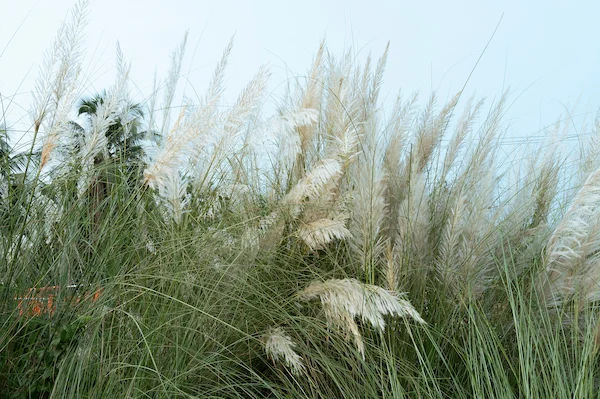Beat the Heat: Your Ultimate Guide to Common Summer Sickness
Beat the summer heat with our ultimate guide to common summer sickness. Learn about causes, symptoms, and prevention tips to stay healthy and safe during hot weather and seasonal changes.


Summer is a season of sunshine, vacations, and outdoor fun. However, the soaring temperatures and high humidity create a perfect breeding ground for a different set of health issues. From the severe threat of heat stroke to the unpleasantness of food poisoning and the surprise of summer colds, being aware of these common summer sicknesses is your first line of defence. This guide goes beyond a simple list. We will delve into the causes, symptoms, and, most importantly, the prevention and management of these seasonal ailments. Whether you're planning a beach holiday, a backyard BBQ, or just trying to stay cool, this comprehensive resource will equip you with the knowledge to identify risks, practice effective prevention, and know when it's crucial to seek professional medical advice. Let's ensure your summer is remembered for all the right reasons.
Heat-Related Illnesses
The most immediate and dangerous common sickness in summer stems from your body's inability to cool itself effectively.
Heat Stroke:
Heat stroke is the most severe form of heat-related illness. It occurs when your body's temperature regulation system fails, and your core temperature rises above 104°F (40°C). It's a life-threatening condition that requires immediate emergency care.
- Symptoms: Confusion, agitation, slurred speech, irritability, delirium, seizures, coma; hot, flushed, and dry skin (though it may be moist if triggered by exertion); rapid, strong pulse; and a throbbing headache.
- Action: Call for emergency medical help immediately. While waiting, move the person to a cool place, remove excess clothing, and cool them with whatever means available (cool water spray, ice packs in armpits/groin, fanning).
Heat Exhaustion:
A precursor to heat stroke, heat exhaustion is your body's cry for help. It results from excessive loss of water and salt through sweat.
- Symptoms: Heavy sweating; cold, pale, and clammy skin; fast, weak pulse; nausea or vomiting; muscle cramps; tiredness or weakness; dizziness; headache; and fainting.
- Action: Move to a cool place, loosen clothing, sip cool water, and apply wet, cool cloths to the body. If symptoms worsen, last longer than an hour, or include vomiting, consult a doctor online with Apollo24|7 for immediate guidance.
Preventing Heat-Related Sickness
Prevention is entirely possible with mindful habits.
- Hydration Strategies Beyond Water: Don't wait until you're thirsty. Drink water throughout the day. During intense exercise or sweating, incorporate electrolyte-rich drinks or natural options like coconut water to replenish lost salts.
- Smart Sun Exposure Practices: Avoid the sun during peak hours (10 a.m. to 4 p.m.). Wear lightweight, light-colored, loose-fitting clothing, a wide-brimmed hat, and sunglasses. Apply a broad-spectrum sunscreen of SPF 30 or higher every two hours.
Waterborne and Foodborne Illnesses
Warm weather accelerates bacterial growth in food, and recreational water activities increase exposure to pathogens, making stomach issues a top common summer sickness.
Food Poisoning:
Potato salad left in the sun, undercooked barbecue meat, and cross-contamination are classic culprits. Bacteria like Salmonella and E. coli multiply rapidly in temperatures between 40°F and 140°F (the "Danger Zone").
- Symptoms: Nausea, vomiting, diarrhoea, stomach cramps, and fever, typically appearing within hours of eating contaminated food.
- Prevention: Keep perishable foods chilled until serving. Use a food thermometer for grilling. Don't leave food out for more than two hours (one hour if above 90°F). Wash hands and surfaces often.
Safeguarding Your Summer Meals
Always practice good food safety. Use separate cutting boards for raw meat and produce. Be cautious with buffet-style meals. When travelling, be wary of street food and opt for bottled or purified water to avoid traveller's diarrhoea. If symptoms of severe food poisoning like bloody diarrhoea, high fever, or signs of dehydration persist for more than 48 hours, it is essential to seek medical attention.
Consult Top Specialists
Airborne and Viral Infections
While colds and flu are associated with winter, several viruses thrive in summer.
Summer Colds and Enteroviruses
Many summer colds are caused by enteroviruses, which peak in the summer and early fall. They spread through respiratory droplets and contact.
- Symptoms: Similar to a winter cold (runny nose, cough, sore throat) but can also include fever, body aches, and sometimes a rash.
Hand, Foot, and Mouth Disease
Common in young children but can affect adults, this highly contagious virus is another common summer sickness.
- Symptoms: Fever, reduced appetite, sore throat, and a characteristic rash with blisters on the hands, feet, and in the mouth.
- Prevention: Meticulous handwashing is key, as the virus spreads through blister fluid, stool, and respiratory droplets.
Skin Troubles in the Sun and Humidity
Heat, sweat, and sun exposure can lead to a variety of dermatological issues.
Prickly Heat (Miliaria) and Fungal Infections
Blocked sweat ducts cause prickly heat—an itchy, red rash. Humid conditions also promote fungal infections like athlete's foot and jock itch.
Management: Wear breathable fabrics like cotton, shower after sweating, and keep the skin dry. Over-the-counter antifungal powders can help.
Insect-Borne Diseases: Mosquitoes and Ticks
Mosquitoes, ticks, and other insects are more active, increasing the risk of diseases like dengue, Lyme disease, and West Nile virus.
- Protecting Yourself from Mosquito-Borne Illnesses
- Use EPA-registered insect repellents containing DEET, picaridin, or oil of lemon eucalyptus. Eliminate standing water around your home where mosquitoes breed. Wear long sleeves and pants during dawn and dusk.
Conclusion
Summer should be a time of enjoyment and relaxation, not spent dealing with preventable illnesses. By understanding the risks and implementing the practical strategies outlined in this guide—from smart hydration and sun safety to vigilant food handling—you can significantly reduce your chances of falling ill. This knowledge empowers you to take control of your health during the warmer months. Remember, while home care is effective for minor issues, professional medical guidance is irreplaceable for severe or persistent symptoms. Have a wonderful, and most importantly, a healthy summer!
Consult Top Specialists
Consult Top Specialists

Dr. Rajib Ghose
General Physician/ Internal Medicine Specialist
25 Years • MBBS
East Midnapore
VIVEKANANDA SEBA SADAN, East Midnapore

Dr. Mijanur Rahaman Mondal
General Practitioner
3 Years • MBBS
Kolkata
Dr Utsa Basu Clinic, Kolkata
(25+ Patients)
Dr P Sai Avinash
General Physician/ Internal Medicine Specialist
7 Years • MBBS
Bengaluru
Apollo Medical Center, Marathahalli, Bengaluru

Dr. Abhishek Ranjan
General Practitioner
4 Years • MBBS
Kolkata
VDC Clinic, Kolkata

Dr. Arif Ahmed
General Physician/ Internal Medicine Specialist
9 Years • MBBS, MD (Genl. Med.)
Kolkata
MCR SUPER SPECIALITY POLY CLINIC & PATHOLOGY, Kolkata
Consult Top Specialists

Dr. Rajib Ghose
General Physician/ Internal Medicine Specialist
25 Years • MBBS
East Midnapore
VIVEKANANDA SEBA SADAN, East Midnapore

Dr. Mijanur Rahaman Mondal
General Practitioner
3 Years • MBBS
Kolkata
Dr Utsa Basu Clinic, Kolkata
(25+ Patients)
Dr P Sai Avinash
General Physician/ Internal Medicine Specialist
7 Years • MBBS
Bengaluru
Apollo Medical Center, Marathahalli, Bengaluru

Dr. Abhishek Ranjan
General Practitioner
4 Years • MBBS
Kolkata
VDC Clinic, Kolkata

Dr. Arif Ahmed
General Physician/ Internal Medicine Specialist
9 Years • MBBS, MD (Genl. Med.)
Kolkata
MCR SUPER SPECIALITY POLY CLINIC & PATHOLOGY, Kolkata
More articles from General Medical Consultation
Frequently Asked Questions
Is there such a thing as a 'summer flu'?
Yes, but it's not influenza. What people call a 'summer flu' is usually caused by enteroviruses that produce flu-like symptoms (fever, body aches) along with common cold symptoms or even a rash, making it a prevalent common summer sickness.
What are the best home remedies for prickly heat?
Keep the affected area cool and dry. A cool bath with oatmeal or baking soda can soothe itching. Calamine lotion or aloe vera gel are also effective. Wear loose, breathable clothing to avoid further irritation.
How can I tell if my child is dehydrated?
Look for signs like fewer wet diapers or trips to the bathroom, no tears when crying, sunken eyes, unusual sleepiness or fussiness, and a dry, sticky mouth. For severe signs, seek medical attention immediately.
What is the fastest way to recover from heat exhaustion?
The fastest way is immediate and aggressive cooling. Get to a cool, air-conditioned space, drink cool water or an electrolyte beverage, apply wet cloths to your skin, and rest. If you don't improve within an hour, seek medical help.
When should I see a doctor for food poisoning?
You should consult a doctor if you have a fever over 102°F, bloody diarrhoea, prolonged vomiting that prevents you from keeping liquids down, signs of dehydration, or if symptoms last more than three days.




